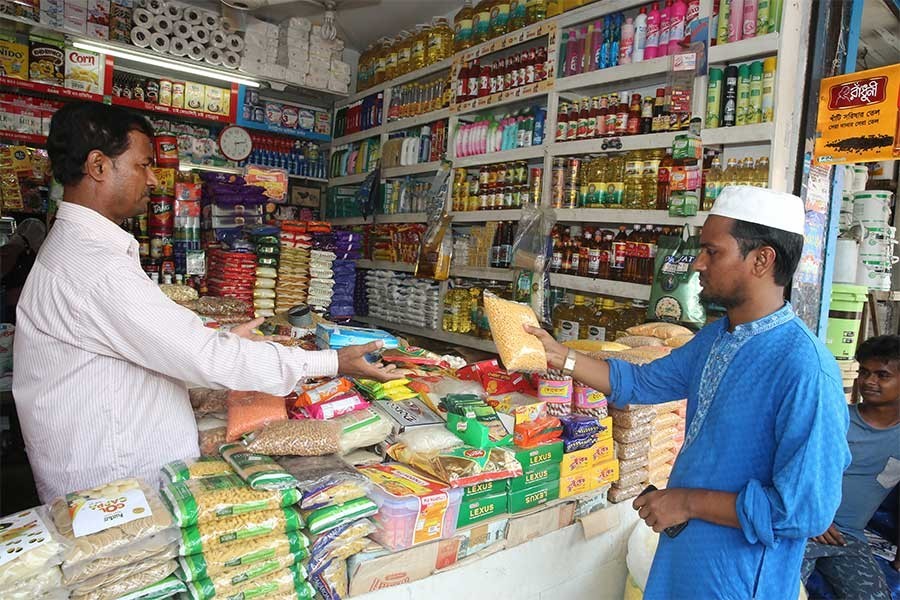With the holy month of Ramadan remaining a little more than a couple of weeks away, consumers are now bracing for yet another spell of hike in the prices of essential kitchen items. The poor, low and middle-income families are already finding it difficult to make ends meet as several daily consumables have become unreasonably pricier in recent months. Any further hike--- a surge in prices of essentials, the consumption of which goes up during the holy month, has been a regular development--- would only add to their woes.
The prices of some major consumables, including rice, edible oils, sugar, wheat, milk---both powdered and liquid---, and lentil, have been on the rise for the past few months. The international prices of these items have played a part in it. An abnormal hike in shipping charges--- more than 100 per cent on some routes, is also blamed for the price-surge.
What, however, pains the consumers most is that the traders here tend to be unreasonable while fixing prices in the event of a rise or fall of the international prices of most items. The businesses hike the prices of an essential instantly if it becomes costlier internationally. The rate of increase is always higher than that of the international market. But they usually react late, if the opposite happens on the plea of their procurement cost.
Keeping the price-level stable during the holy month of Ramadan should not be that difficult if both the government and the businesses play by the rules. The government needs to monitor both international and domestic markets regularly and make an assessment of the additional demand created for certain items during the month of Ramadan. Based on such assessment, the Ministry of Commerce (MoC) can sit with the traders concerned, draw a procurement plan and fix the prices of those items.
The MoC, somewhat ritualistically, holds a few meetings with the importers and traders ahead of Ramadan where the latter makes a few assurances to keep the market stable. But, in the end, those turn out to be useless exercises. The government also talks about its intervention through the Trading Corporation of Bangladesh (TCB) to help keep the prices of a few essentials stable. The truth is such intervention being very limited in nature does not leave any impact on the market. The open market sale (OMS) of the TCB that has been continuing throughout the Covid-time is a pointer to that fact.
The ongoing price spiral is taking a heavy toll on the poorer section of the consumers who had faced a tough situation during the peak time of the pandemic last year. They are now trying to piece together their life shattered by the deadly pathogen. But the ongoing resurgence of the disease has emerged as a renewed threat to their recovery effort. The government will have to do something more meaningful to bring down the prices of essentials within the reach of the common man.


